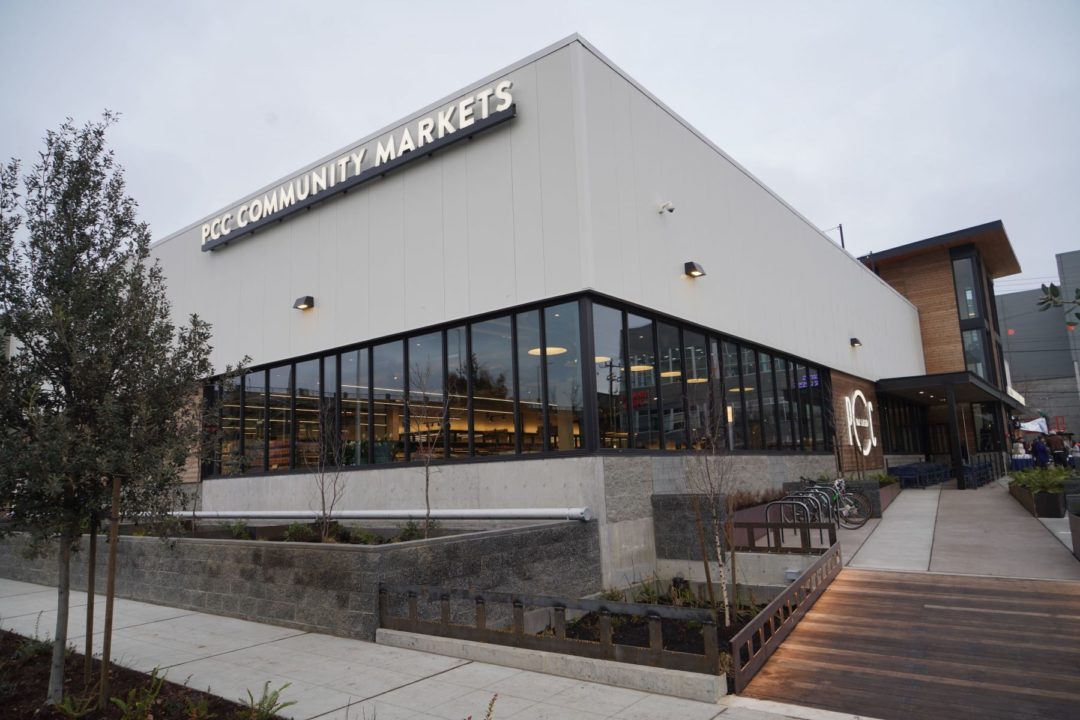“By working with ILFI to reduce harmful chemicals in our stores and in reusing materials rather than sourcing new, PCC is taking small but important steps for the health of our staff, local communities, and our planet,” said Brenna Davis, PCC’s VP of Social and Environmental Responsibility. “When building our new stores to be LBC Petal-Certified, we are working toward our vision to inspire and advance the health and well-being of people, their communities and the planet.”
The steps taken include:
- Exclusion of Hazardous Materials: Both PCC locations avoided hazardous materials on LBC’s “Red List” which is an extensive list of more than 800 toxic “worst-in-class” substances that have the greatest negative impact on people and the local ecosystems, such as polyvinyl chloride (PVC) which is commonly used to make belts in checkout stands.
- Investment in the Local Community: PCC worked to minimize the impact on the environment associated with the build and transportation of goods in construction. The co-op invested in materials sourced locally wherever possible and re-used materials including shelving and appliances from other locations. Additionally, 97% of building materials (by material budget) for both stores were sourced from within the U.S.
- Protecting Local Ecosystems: The co-op contributed funds to protect, in perpetuity, land equivalent to the footprint of the stores (just over 49,500 total square feet) through ILFI’s Habitat Exchange Program that protects thriving ecosystems from harm as a result of development.
“PCC is showing people what a Living Future looks like, setting the tone for the whole sector,” said Lindsay Baker, CEO of the International Living Future Institute. “With these new stores, PCC is building on its long history of putting the health of its workers and members at the center its business practices.”









